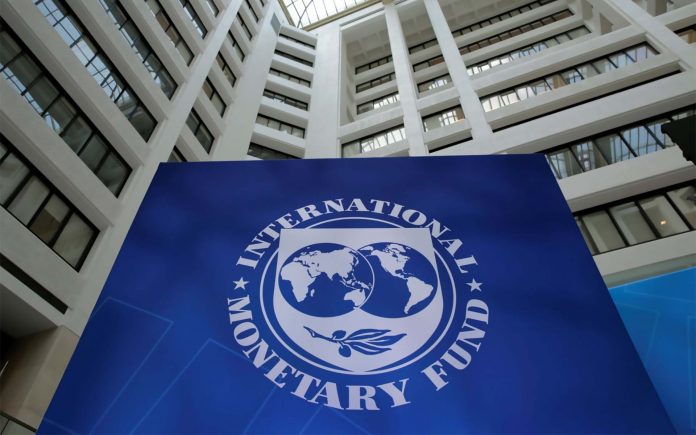—International Monetary Fund team holds meeting with officials of finance ministry
—Fund projects Pakistan’s growth to be 2.9% in 2019
ISLAMABAD: While the Ministry of Finance (MoF) and visiting mission of International Monetary Fund (IMF) has started final rounds of talks in Islamabad, the ministry is likely to depend largely on the data and projections of its potential lender – the IMF, sources informed Pakistan Today.
The ministry, which lacks team of experienced economists to deal with the experts of IMF, is reportedly facing difficulties in convincing the lender for relaxing conditions. “The IMF team feels it uneasy and irritating when it is not provided the required latest data. The IMF usually asks for the latest data related to taxes, tariffs and subsidies but the ministry’s officials provide old data based on previous months,” a source said.
Though the Adviser to Prime Minister on Finance, Revenue and Economic Affairs Dr Hafeez Shaikh knows well how to deal with the mission but, he has spent a little time at the ministry to brief IMF about steps taken in the past six months.
“Though the ministry usually invites economists of State Bank of Pakistan (SBP) to talk to the experts of the foreign mission, the SBP’s experts complain that they can only handle monetary subjects but not the taxes, revenue and planning related issues,” said the sources, adding that the finance secretary is also new to handle highly technical issues at the ministry.
Despite an advertisement for the post, the ministry has not hired an economic adviser for dealing with the technical issues and negotiations with the lenders. “It seems that the bureaucracy at the ministry favors handing over economic management to the international lender after making a deal with IMF. When we start borrowing, the actual management goes in the hands of the IMF,” said sources.
“Keeping in view the preparation of the ministry, it is in the interest of Pakistan to accept what the IMF has. Delaying the programme for longer will not be in favor of Pakistan’s economy,” said an economist.
The delegation of the IMF, which arrived in Pakistan on Monday, held its first meeting at the finance ministry for discussing another bailout programme. According to sources, the IMF team will be holding meetings with SBP, FBR and other departments and provincial authorities during next one week.
The two sides will discuss the possibility of a $7-8 billion loan for Pakistan.
“Extensive preparation for data and macroeconomic framework finalisation and structural reforms are in process,” Ministry of Finance Spokesperson Dr Najeeb had said last week. He had further said that the ministry had held in-depth discussions with all key stakeholders including the SBP, Power and Gas Division, Privatisation Commission, Federal Board of Revenue and Benazir Income Support Programme.
Earlier, Prime Minister Imran Khan had met IMF Director Christine Lagarde on Friday on the sidelines of the second Belt and Road Forum in Beijing, China. During the meeting, the two sides had agreed on the importance of the IMF programme for the country and reviewed the relationship between Pakistan and the global lender.
IMF projects Pakistan’s growth to be 2.9% in 2019:
Meanwhile in its latest report “Regional Economic Outlook: Middle East and Central Asia Update”, IMF has projected Pakistan’s economic growth to be 2.9 per cent in 2019, down from 5.2 per cent recorded in 2018.
The report, which looks at the economies of 23 countries spanning North Africa, the Levant, the Persian Gulf, but also Djibouti, Somalia, Afghanistan and Pakistan, predicts that overall growth across these nations is expected to slow down from close to 2 per cent last year to about 1.5 per cent in 2019.
As per the report, weaker growth in Pakistan is pulling down the regional aggregate growth rate this year, with large macroeconomic imbalances and ongoing policy adjustment challenges expected to slow Pakistan’s growth from 5.2 per cent in 2018 to 2.9 per cent in 2019.
Moreover, while remittances help to provide a buffer for current account deficits in many countries (Morocco, Pakistan, Somalia), there is a downside risk of a slowdown in remittance-originating countries, most of which are in Europe or the Gulf Cooperation Council.
It says while restructuring state-owned enterprises would also make for more efficient spending. In countries where the level of tax collection is low such as in Afghanistan, Pakistan and Sudan, there is also at higher risk of debt distress where public debt exceeds 70 per cent of GDP.
Regional inflation is projected to pick up slightly to 11.3 per cent in 2019, primarily due to higher inflation in Egypt (fuel subsidy reform) and Pakistan (weaker exchange rate).




